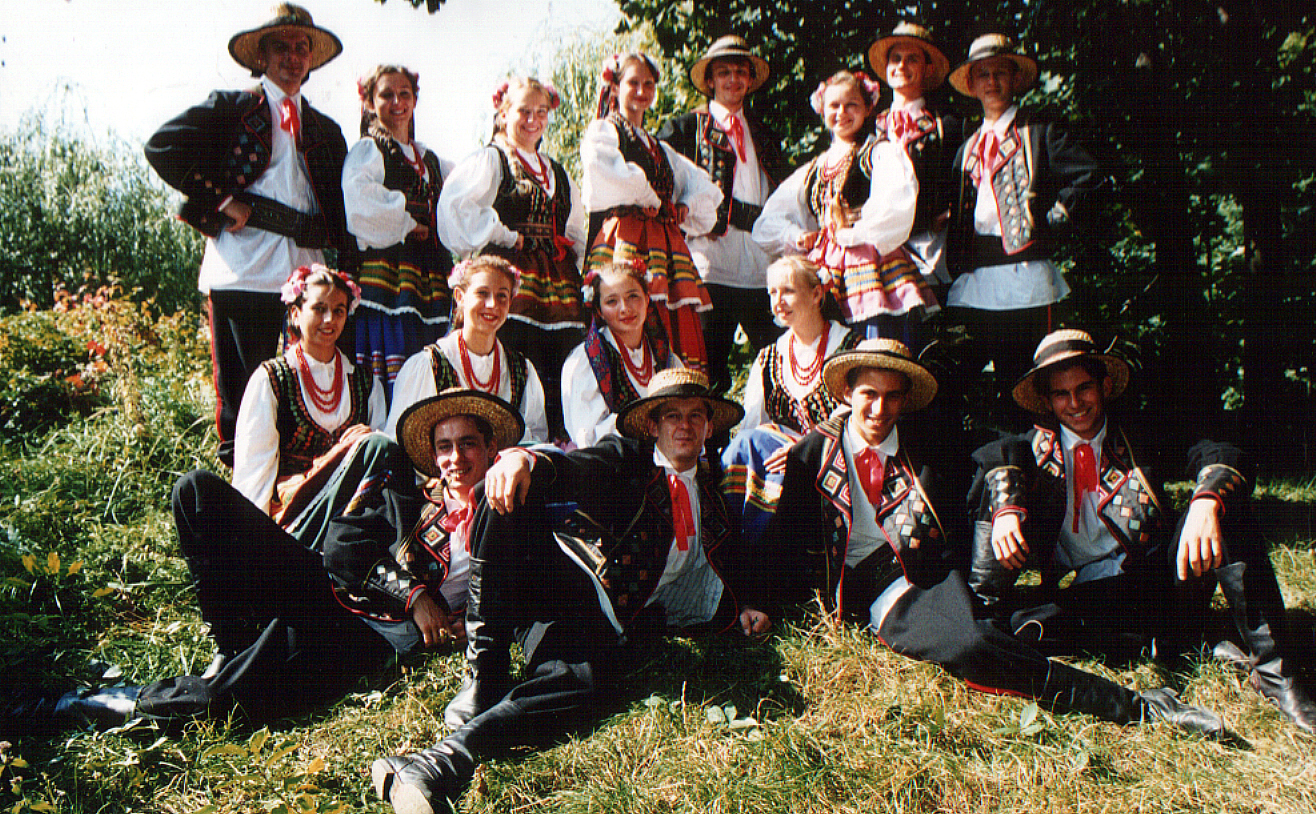Lublinians on:
[Wikipedia]
[Google]
[Amazon]

 The Lublinians (
The Lublinians (

Polish
Polish may refer to:
* Anything from or related to Poland, a country in Europe
* Polish language
* Polish people, people from Poland or of Polish descent
* Polish chicken
* Polish brothers (Mark Polish and Michael Polish, born 1970), American twin ...
: ''Lubliniacy'') are a subethnic group of the Polish people
Polish people, or Poles, are a West Slavic ethnic group and nation who share a common History of Poland, history, Culture of Poland, culture, the Polish language and are identified with the country of Poland in Central Europe. The preamble t ...
, who reside in the historic region of Lesser Poland
Lesser Poland, often known by its Polish name ''Małopolska'' (; ), is a historical region situated in southern and south-eastern Poland. Its capital and largest city is Kraków. Throughout centuries, Lesser Poland developed a separate cult ...
, in the area of the city of Lublin
Lublin is List of cities and towns in Poland, the ninth-largest city in Poland and the second-largest city of historical Lesser Poland. It is the capital and the centre of Lublin Voivodeship with a population of 336,339 (December 2021). Lublin i ...
. They use their own dialect, which belongs to the Lesser Poland dialect
The Lesser Polish dialect group () is a of dialect group of the Polish language used in Lesser Poland. The exact area is difficult to delineate due to the expansion of its features and the existence of transitional subdialects.
The common tra ...
of the Polish language
Polish (, , or simply , ) is a West Slavic languages, West Slavic language of the Lechitic languages, Lechitic subgroup, within the Indo-European languages, Indo-European language family, and is written in the Latin script. It is primarily spo ...
. Like most Poles, the Lubliniacy are Roman Catholics
The Catholic Church (), also known as the Roman Catholic Church, is the largest Christian church, with 1.27 to 1.41 billion baptized Catholics worldwide as of 2025. It is among the world's oldest and largest international institut ...
.
Polish linguist Jan Stanislaw Bystron claimed that the Lubliniacy should be regarded as a group that belongs to the region of Kresy Wschodnie (Eastern Borderlands), as they resided in areas which had previously been inhabited by Eastern Slavs. Furthermore, the Lubliniacy were under influence of neighboring province of Mazovia
Mazovia or Masovia ( ) is a historical region in mid-north-eastern Poland. It spans the North European Plain, roughly between Łódź and Białystok, with Warsaw being the largest city and Płock being the capital of the region . Throughout the ...
. Examples of local architecture and other artefacts are kept at the Museum of Lublin Village in Lublin.
Polish ethnographer Janusz Kamocki divided the Lubliniacy into the following subgroups:
* Powisle Lubelskie, along the Vistula
The Vistula (; ) is the longest river in Poland and the ninth-longest in Europe, at in length. Its drainage basin, extending into three other countries apart from Poland, covers , of which is in Poland.
The Vistula rises at Barania Góra i ...
river, which has been under strong influence of the neighboring Mazovia
Mazovia or Masovia ( ) is a historical region in mid-north-eastern Poland. It spans the North European Plain, roughly between Łódź and Białystok, with Warsaw being the largest city and Płock being the capital of the region . Throughout the ...
,
* Bilgoraj, which is strongly tied to the Lesser Poland traditions
* Zamosc, residing outside the area of historic Lesser Poland, but belonging to its cultural circle. Peasants of former Zamoyski Family Fee Tail emphasize their difference,
* Central, around Lublin.
Sources
* Encyklopedia Polski. wyd. Wydawnictwo Ryszard Kluszczynski, Kraków 1996.See also
*Lesser Poland
Lesser Poland, often known by its Polish name ''Małopolska'' (; ), is a historical region situated in southern and south-eastern Poland. Its capital and largest city is Kraków. Throughout centuries, Lesser Poland developed a separate cult ...
Ethnic groups in Poland
Polish traditions
Lublin Voivodeship
Culture of Poland
Slavic ethnic groups
West Slavs
{{Poland-stub